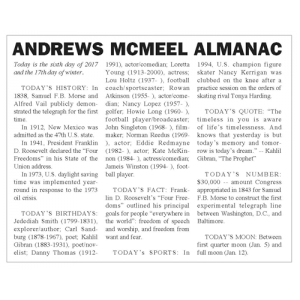Democrats Should Exercise Prosecutorial Discretion
Browse MoreDescription
Forget Russian collusion. Never mind motivations to fire former FBI chief James Comey two years ago. Leave alone the rumors of tax evasion and money laundering.
Just this week, President Donald Trump appears to have committed a crime before all of us by instructing former White House Counsel Don McGahn not to comply with a lawful Congressional subpoena. His actions seem to meet all of the required elements of an obstruction of justice charge, namely 1) there was a pending federal judicial proceeding, 2) Trump knew about the proceeding and 3) by telling McGahn to skip the hearing in the house, he demonstrated corrupt intent in interfering with the proceeding or attempting to do so.
Even though I think Trump’s instruction to McGahn is criminal, I still don’t agree that Congress should pursue impeachment for it, and it’s not because I want our 45th commander in chief to lead this country anymore. Impeaching the president now, with this Congress, reinforces the American practice of abandoning discretion and bringing charges that a prosecutor knows he can’t prove at trial.
Impeachment of Donald J. Trump is imminently unwinnable. All Trump needs for an acquittal is 34 senators to vote “not guilty.” Right now, only one Republican has expressed support for impeachment and he’s in the wrong chamber of Congress to make a difference in the ultimate removal verdict. U.S. Representative Justin Amash of Michigan called for impeachment and he’s the loneliest GOP member in Washington right now.
The impeachment debate and process is an analog to what happens everyday in criminal courthouses. The fact that that the case of our president’s high crimes and misdemeanors can’t be won should be enough to stop it. In 1979, the Supreme Court of the United States decided United States v. Batchelder and, in an opinion authored by Justice Thurgood Marshall, underlined the importance of prosecutorial discretion. Part of that discretion is the maxim that prosecutors shouldn’t commence criminal cases unless they know that their evidence will support a conviction.
Prosecutors bring shoddy cases all the time though, ones they know that they can’t win and can’t prove. They do it because they so rarely have to prove anything; they win as much as 97% of the time because defendants plead guilty — and not because they are always culpable. Because we don’t know the true number of cases where a defendant won at trial, we don’t know how often cases are proven to be unwinnable.
Members of the Resistance will insist: “But that’s not what’s happening here. House Democrats have all the evidence needed to impeach — from this week alone!”
As a practical matter, that’s not true. If they can’t convince 14 Republican senators to join their Democratic colleagues to form a jury of 67 senators who will find Trump guilty in an impeachment trial in the Senate, then Democrats don’t have the necessary proof. They can’t make the case, so they shouldn’t try.
I’m sure people will point out that even failed prosecutions can achieve a measure of justice by exposing wrongdoing and expressing public morality and outrage at certain behavior; that’s the sentiment behind the push for impeachment now.
While that’s true, in my almost two decades of experience in this system, I’ve seen too much righteousness become toxic and erode good prosecutorial judgment. The 2,448 people who have been officially exonerated since 1989 will tell you that the men and women who pursued the charges against them were so righteous that they couldn’t even see the exculpatory evidence within their own files.
As far as I’m concerned, for that righteousness not to poison the system, it has to apply to winnable cases, too. Good prosecutorial discretion dictates that we go after only those cases that can be won and, even then, not all of them.
Many criminal cases are fully evidenced and guarantee a conviction, but they’re not worth the damage that prosecution will do to a poor or sick defendant who poses no danger to the larger community.
I’m thinking about Jamycheal Mitchell who was arrested in 2015 for stealing $5 worth of food and kept in a Virginia jail awaiting trial. I would venture that the Commonwealth had sufficient evidence to convict Mitchell of shoplifting but we will never know; he died in custody awaiting a move to a psychiatric hospital because he had been deemed mentally incompetent to stand trial. That was a winnable case that district attorneys should have tossed.
Whether it’s presidential impeachment or nailing a guy who boosted a Snickers and a Mountain Dew, discretion should reign.
To find out more about Chandra Bozelko and read features by other Creators writers and cartoonists, visit the Creators website at www.creators.com.







Reviews
There are no reviews yet.